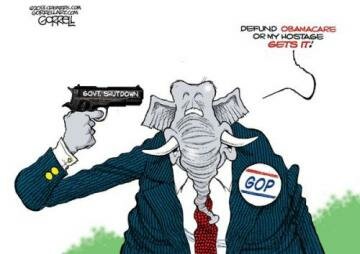Austerity Makes People Sick... Literally
By 0

As the Greek government implemented austerity measures in response to a financial crisis, Greek suicide numbers doubled last year. And in London, tuberculosis rates grew by 8 percent from 2010 to 2011, a result of increased homelessness and drug use during the Great Recession. In "The Body Economic: Why Austerity Kills," Oxford political economist David Stuckler and Sanjay Basu, an epidemiologist at Stanford University's Prevention Research Center, argue that austerity measures have public health consequences, including HIV outbreaks and increased rates of depression, suicide and heart attacks. The authors recently spoke with U.S. News about the relationship between fiscal policy and public health. Excerpts:
Why connect public health with austerity?
Basu: In the 1990s, there was an astounding series of studies that said, What if everybody had perfect health insurance? How many premature deaths in the U.S. among people less than 75 years of age could we prevent? And it turned out that the answer was only about 15 to 20 percent. The other 80 to 85 percent can't be affected by medical care, meaning that health doesn't start on the exam table in the ICU, but in our homes, in our neighborhoods, whether we smoke or drink too much, and the quality of our air, food and safety. One of the biggest determinants therein is the state of the economy and, in particular, whether we have safety nets during hard times.
How does austerity lead to a loss of life?
Stuckler: When effective services and supports that sustain health are withdrawn, they pose a direct risk. A clear example can be seen in Greece today. To meet the deficit reduction targets, the health sector in Greece has been cut by more than 40 percent. HIV infections have more than doubled as effective needle exchange program budgets were cut in half. There was a return of malaria after mosquito spraying programs to prevent the disease were also cut, covering the southern part of the country. Deep reductions of a pharmaceutical budget led several pharmaceutical companies to leave the country. There was subsequently a 50 percent increase in people reporting being unable to access medically necessary care.
What surprised you most in your research?
Basu: That there are some very well-researched, effective programs out there that can benefit both public health and the economy, but the academic research is so far afield from the public discourse. A lot of the discourse just assumes that the only way to reduce deficits is to cut budgets in the short term, and it's quite hard to explain why that's a bad idea and actually increases long-term budgets. That counterintuitive problem has created a lot of fallacies and makes it difficult to translate research into practice.
Do you expect to see public health consequences to spending cuts in the U.S.?
Basu: We already see them if we compare state-based responses to different kinds of unemployment crises since 2007. We can, controlling for pre-existing conditions, compare states that underwent more extensive budget cuts versus those that didn't; and [we] saw a rise in suicide among those who were denied unemployment benefits.
Which current policies are most harmful to public health?
Basu: I think the indiscriminate cuts to safety net programs among the poor are particularly easy to implement and particularly dangerous for public health. [And] cuts to our nation's best defense system against epidemics, the Centers for Disease Control [and Prevention] are particularly dangerous. We recently had the fungal meningitis outbreak, and without the CDC, it would've been hard to conceive of how we would've protected ourselves from having a dramatic expansion of that epidemic.
Are there any economic policies that don't have daunting human costs?
Basu: In many areas of the world, we see pretty effective policies that simultaneously improve health and the economy. For example, in Sweden and Finland there are active labor market programs. They help enroll the newly unemployed into supportive job retraining and re-entry, and work with both firms and the newly unemployed. As a side effect, they seem to reduce suicide, depression and alcoholism, while also stimulating the economy and being, in some cases, net cost-saving.
Why should President Obama read your book?
Stuckler: The book shows that there is an alternative to austerity that's grounded in evidence. And when governments pursue it, they can pave the way to a happier and healthier future for people. By making smart, evidence-based investments, not only is it possible to protect people's most valuable asset – their health – but to chart faster economic recoveries and address fundamental threats of deficits and debt. A simple answer is because his choices and those of Congress are matters of life and death for millions of Americans.
leave a comment








